Weekly Reader: Happy Mother's Day
“Oh, I know that I owe what I am today / to that dear little lady so old and gray / to that wonderful Yiddishe momme of mine.” So sang Sophie Tucker (and others) in that immortal paean to Jewish mothers, “My Yiddishe Mame.” It’s a bit saccharine, sure, but what better occasion than Mother’s Day for a bit of well-placed sentimentality? “My Yiddishe Mame,” written by Jack Yellen and Lew Pollack and made famous in Yiddish vaudeville, may be the most well-known song about Jewish mothers, but Yiddish writers had plenty to say about the subject. On a serious note, there are few more inspiring mother-daughter relationships in Yiddish literature than that of novelist Chava Rosenfarb and her daughter Goldie Morgentaler, who has devoted herself to translating her mother’s writing. Morgentaler will be giving a talk about Rosenfarb’s forthcoming short story collection In the Land of the Postscript on May 18 (register here!), but until then, read on for some more Mother’s Day goodness.
—Ezra Glinter, Senior Staff Writer and Editor
Behind the Curtain
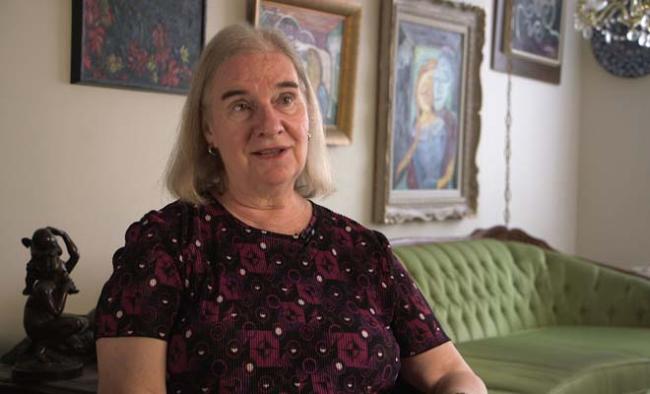
Goldie Morgentaler has long been a friend of the Yiddish Book Center, and her work has featured often in this newsletter. This time, rather than point you to Morgentaler’s writing (though you should read it!) or to her lectures, I’d like to recommend this interview she did with the Center’s Wexler Oral History Project. Here you can listen to an intimate, less formal discussion about what it was like to grow up as the daughter of one of the twentieth century’s great Yiddish novelists.
A Writer’s Daughter
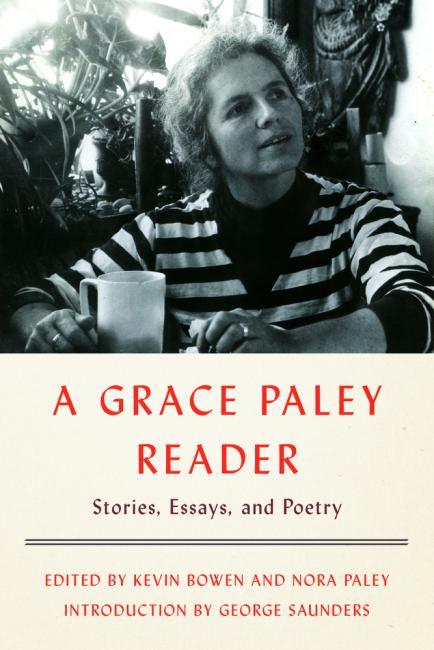
Morgentaler’s relationship with her mother was hardly the only daughter-mother collaboration in Jewish literature. In this podcast episode from 2017, Nora Paley, the co-editor of A Grace Paley Reader: Stories, Essays, and Poetry, talks about the life and work of her mother, writer Grace Paley. Nora explains, “Who Grace Paley was, and that she was my mother, are naturally inseparable for me.”
Baleboste of the Bronx
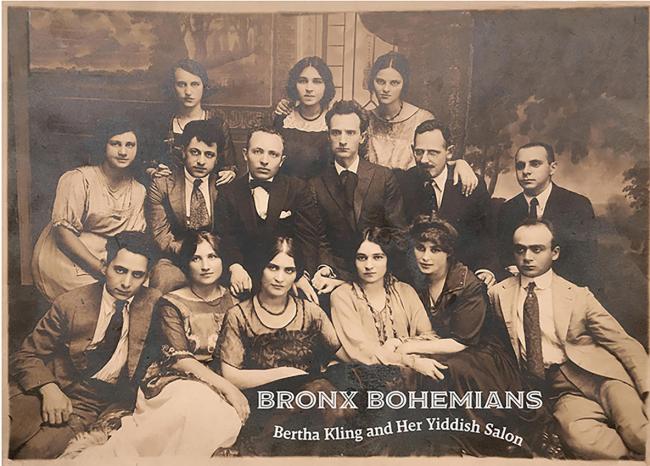
Mothers can sometimes be literal, sometimes figurative. One of the latter, who nourished an entire community of writers and artists, was Bertha Kling. Together with her husband, Yekhiel, Kling hosted a salon in the Bronx for novelists, poets, composers, musicians, painters, satirists, actors, singers, puppeteers, and journalists, along with their friends and relatives. All were attracted by the warmth of their hosts and the heymish (convivial) atmosphere. In 2020 we celebrated Kling’s salon as part of that year’s Decade of Discovery theme, “Yiddish America,” and launched the Bronx Bohemians blog about Kling and her circle. That year has come and gone, but the blog continues to be updated.
Den Mother
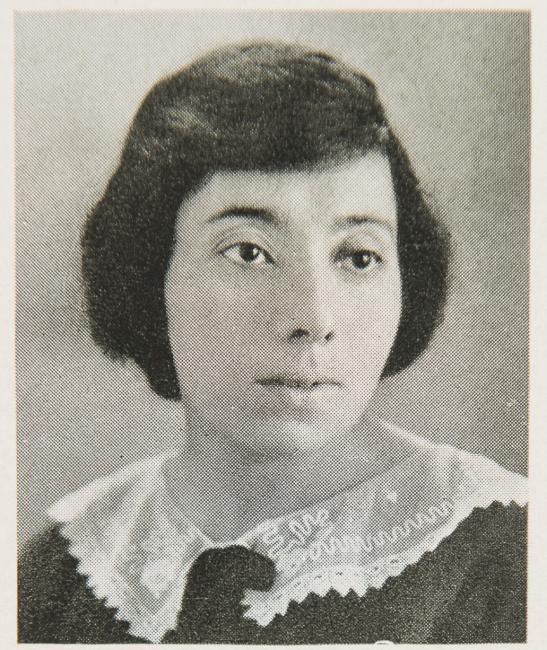
Another figurative mother (though also a literal one) was Ida Maze, a poet who was known as the “den mother of Yiddish Montreal.” The Center’s White Goat Press recently published Maze’s autobiographical novel Dineh in its first English translation, which has helped bring greater attention to this nearly forgotten Yiddish writer. Of course, one never forgets a mother. In this oral history interview, Maze’s son, Irving Joseph Massey, describes what it was like to grow up in his mother’s literary and political environment.
Mothers to Remember
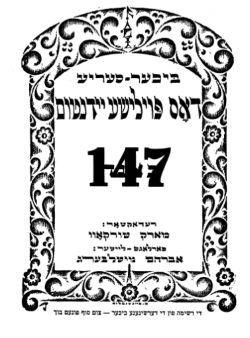
One of the great post-Holocaust Yiddish publishing efforts was Dos poylishe yidntum (Polish Jewry), a 175-book series edited by Mark Turkow and issued by the Tsentral farband far poylishe yidn in argentine (Central Union of Polish Jews in Argentina) between 1946 and 1966. Book #145 in the series was a book of short stories by Pinkhes Shtaynvaks (about whom I can find very little information—if you have any, let me know!) titled Yidishe mames tsum gedenken (Jewish Mothers to Remember). Each story is—you guessed it—about a mother.
Read Yidishe mames tsum gedenken in the Steven Spielberg Digital Yiddish Library
